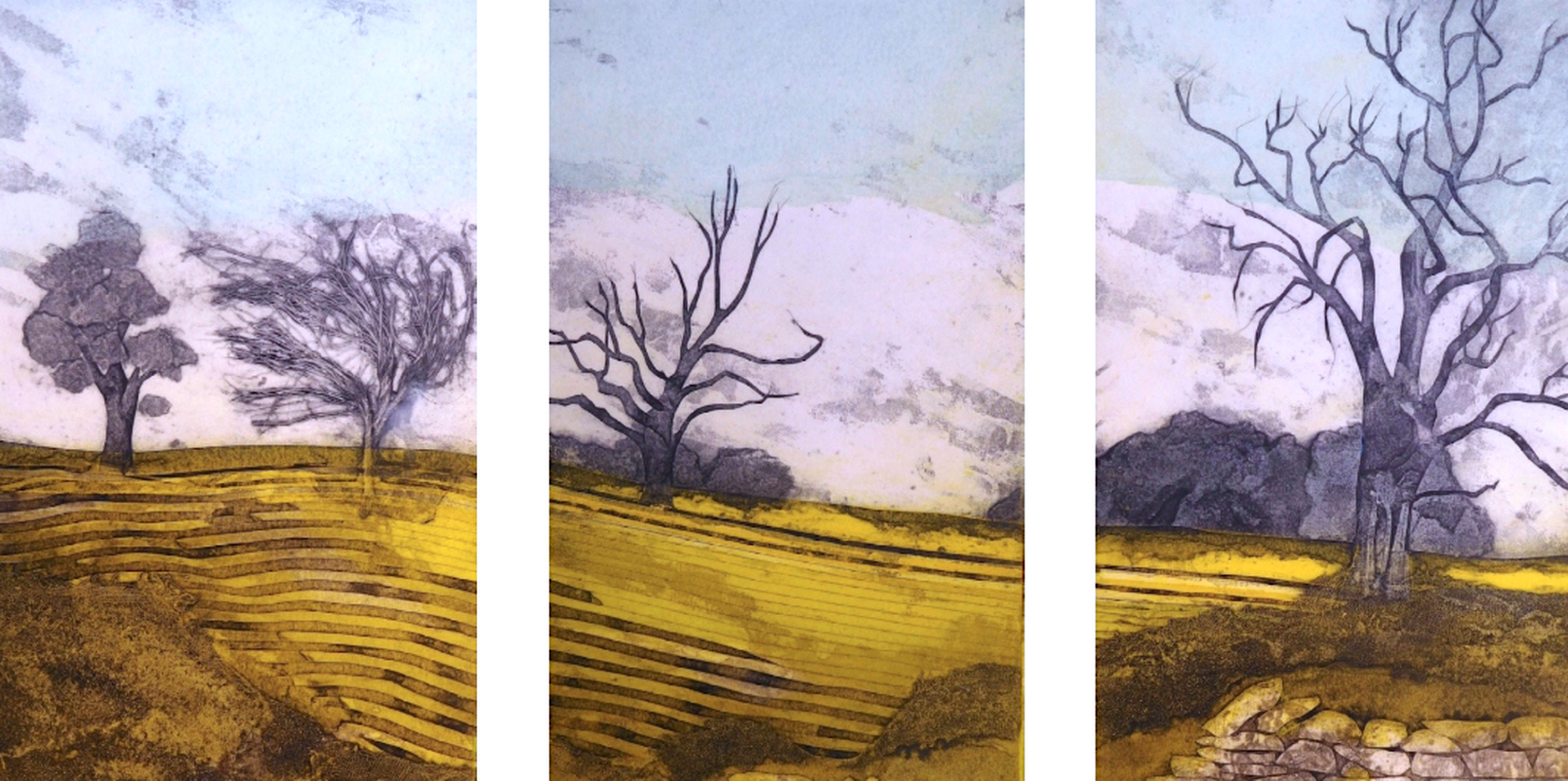
SARAH ROSS-THOMPSON AND THE ART OF COLLAGRAPHED PRINTS
I interviewed artist Sarah Ross-Thompson whose exceptional Collagraphed prints use fabrics, lichen, porridge and string to create images of the dramatic Scottish Highlands where she

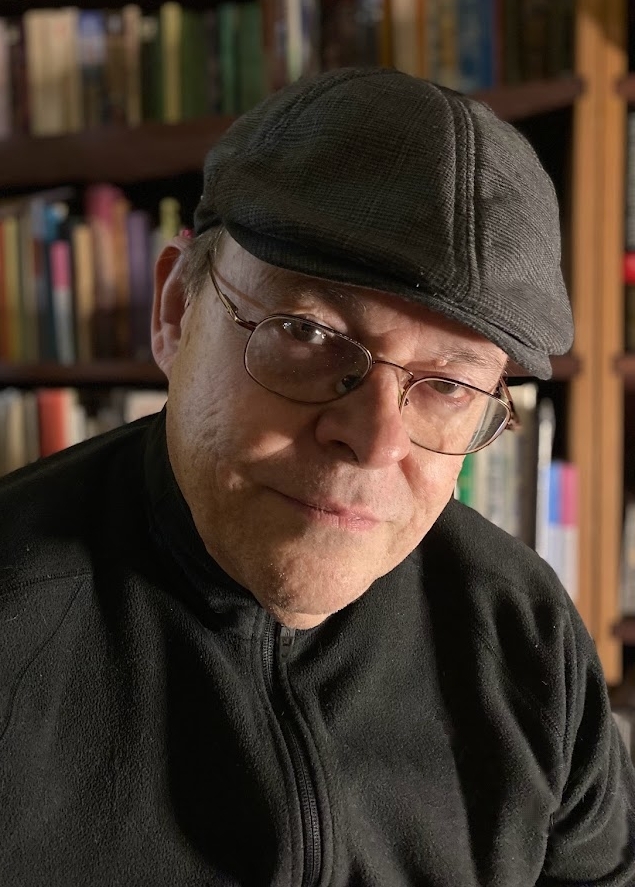
I interviewed Rolando Garcia about why we should respect science, and how it works. Rolando describes his advanced scientific discoveries and the books he’s written about the richness and importance of modern scientific knowledge.
“Science is a way of thinking about the world that should inform our life choices and guide us every day.” – Rolando Garcia
Leslie: Looking back, what first made you want to be a scientist?
Rolando: I remember that when I was a little kid, I wanted to know how things worked. One particular thing that puzzled me is life. How is life different from non-life? What keeps things alive? Why do living things die? This was a factor behind me studying biology in college and, later on, moving to areas such as nutrition, biochemistry, physiology, neuroscience, and molecular biology.
Leslie: Can you describe the personal joy/pleasure/excitement that particular scientific ideas/discoveries have given you?
Rolando: Ideas can be deceiving beasts, like the sirens of mythology. During my career, I have fallen in love with many ideas only to see them crash and burn when put to test. As you gain experience in science you toughen up and learn to be skeptical of your own ideas. Ideas are important motivators of scientific endeavors, but they are a dime a dozen until tested.
On the other hand, discoveries both big and small are amazing things. I once discovered that certain receptors present in nerve cells interacted with important proteins at synapses, which are the sites where these cells communicate with each other. On another occasion I discovered that a drug which had been claimed to not work in certain situations actually did work in a mouse model of those situations. These were significant discoveries that advanced the science in their respective fields. You make a discovery, and there you are in the lab at night with no one around, and you realize that among all the billions of people and millions of scientists in the world, you are the only one who knows what you have just discovered. It’s a great feeling.
When your discovery is reproduced by other labs, that is also very fulfilling, because you realize that you have uncovered something that is independent from you, something “out there” that is real and will continue to exist once you are gone. But the ultimate joy of making a discovery is when it helps improve the wellbeing or health of others, or even save lives. The closest to this that most scientists can get is being part of a group or organization that achieves this through a collective effort. I’ve been fortunate enough to have contributed to a research project that led to a drug that saved people’s lives.
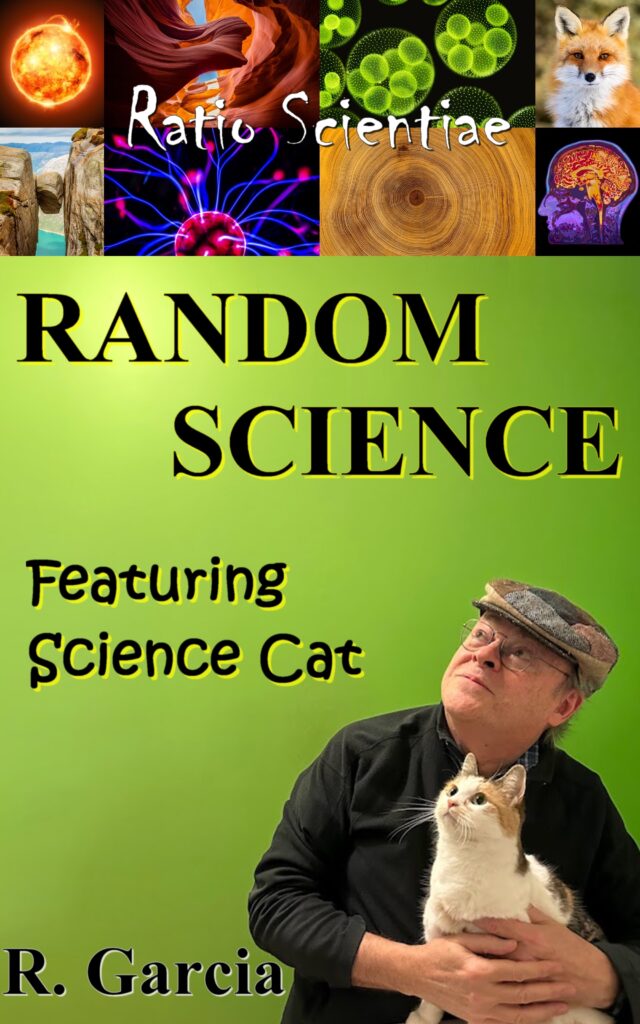
Leslie: What are the most important lessons you’ve learned from your work as a scientist?
Rolando: Insofar as the actual research is concerned, I’ve learned to be careful. I’ve lost count of the number of times I’ve been wrong or the number of times I’ve seen or read about other scientists making mistakes. Sometimes one little overlooked detail can derail a whole project. So I check, and double check, and triple check what I do, and I show my research to other scientists. A colleague once joked that I do controls for the controls. It’s exhausting, but in the end, you are more certain of your results.
When considering starting research projects, I have learned the importance of asking the right questions. Asking the right questions is the base of the research pyramid. If the questions are not optimal, the research will be subpar. When dealing with areas outside my field of expertise, I have also learned to respect the experts and not to be foolish enough to think that I know more than those who have devoted decades of study (theoretical and practical) to a specific area of science.
But the most important lesson I’ve learned is that science should not be something restricted to jargon-ridden technical publications or fun videos on YouTube. Science is not something meant to be applied at some times for some things and not others. Science is a way of thinking about the world that should inform our life choices and guide us every day. Unfortunately, many people (paradoxically including a good number of scientists) do not follow this principle.
Leslie: Can you illustrate from your experience the best and worst uses of science?
Rolando: The best uses of science depend on motivation and caring for and respecting people. There are basic scientists who are genuinely interested in knowing how things work and applied scientists who are genuinely interested in creating useful inventions and helping people. The best science comes from the merging of these two types of science. However, there are some scientists who are motivated only by gaining prestige, power, and riches. These scientists generate toxic workplace environments and institutional cultures rife with ethical lapses. But this is not unique to science. Every human endeavor suffers this type of problem from churches, government institutions, and big corporations to neighborhood associations and small family businesses. It’s the human condition.
Leslie: Can you explain, please, what is “unique about science and what separates it from other disciplines of thought and from non-science or pseudoscience.”
Rolando: What is unique about science compared to non-scientific disciplines is that scientific ideas can be put to test and proven to be wrong if indeed they are. In contrast, non-scientific ideas are seldom put to test, or if they are, they are never proven wrong because their proponents always explain away or dismiss negative evidence. Also, in science you succeed when you convince your peers that you are right. Your peers are scientists who know as much as you do about an area of science, and they are the most immediate arm of the so called “scientific establishment”. In non-scientific disciplines, you succeed when you convince those who know less than you that you are right, and they become your followers and/or buy what you are selling.
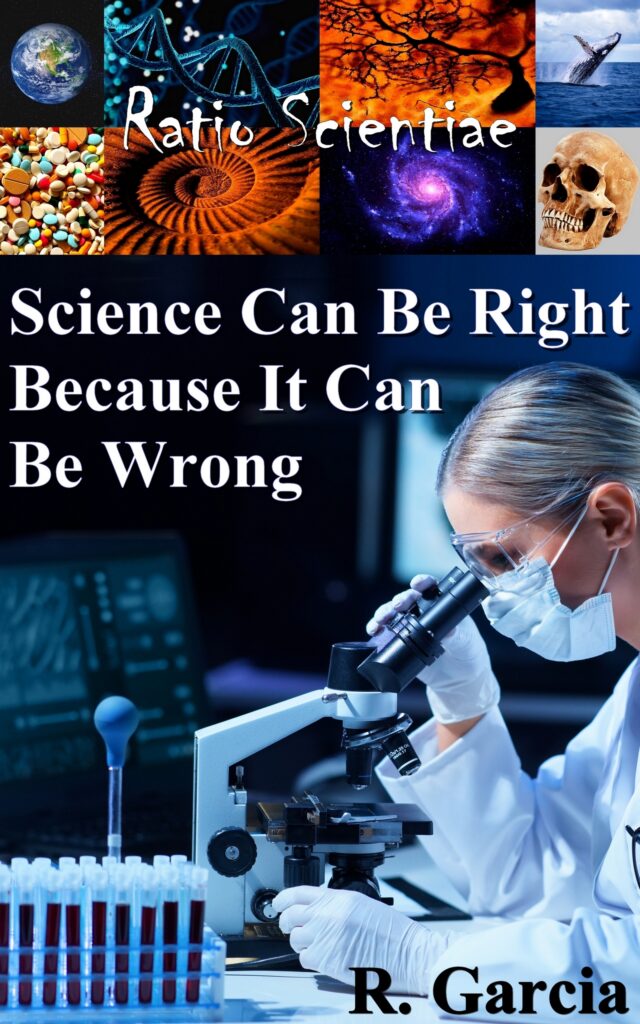
Leslie: How did you put together ‘Science Can Be Right Because It Can Be Wrong’ and ‘The Gift of Science’?
Rolando: Science Can Be Right Because It Can Be Wrong and The Gift of Science were put together from essays posted on my blog over several years. The challenge was not to write the books, as the writing had already been done. The challenge was to integrate the essays into a meaningful whole with unifying themes and chapters, bringing the essays up to date (including hyperlinks), and doing rewriting and checking for grammar. It was like putting a puzzle together as opposed to designing one from scratch. I also published an additional science book entitled Random Science (based on the “Random Science” section of my website) using the same procedure but following a radically different organizing principle. This book also has many links to my YouTube channel.
Leslie: How do you go about writing books like these and how do you ensure they remain high quality start to finish?
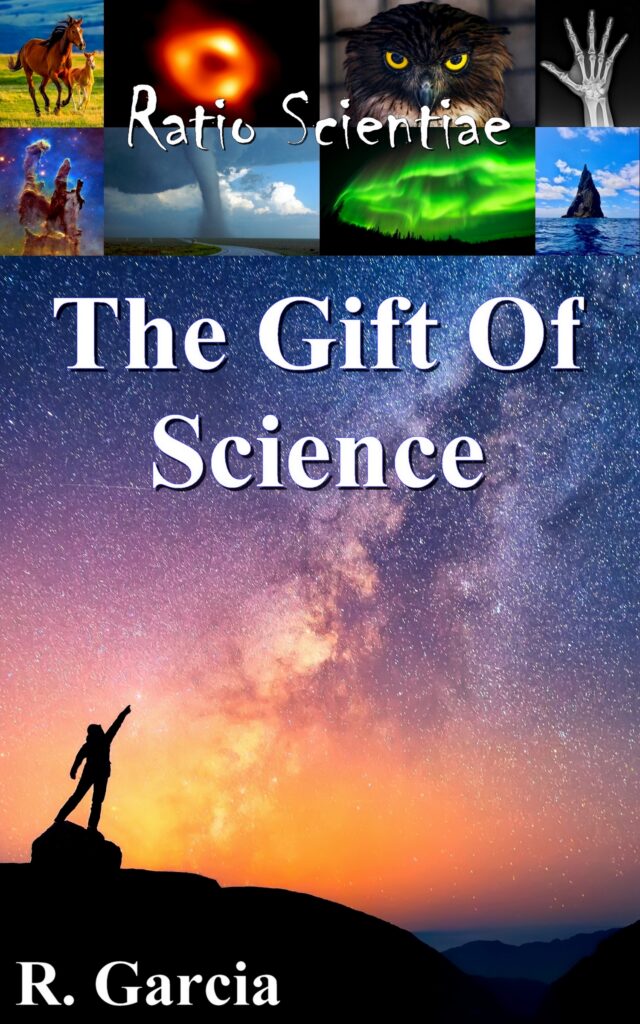
Rolando: I am really bothered when I realize I’ve misunderstood the science that I wrote about, or when I make grammatical or spelling mistakes (English is not my first language). I am my fiercest critic. I always read and reread what I write and check the references I provide. Also, thankfully, my wife is an English teacher and she proofreads most of what I write.
Leslie: How did you develop as a writer during the process of writing the two books?
Rolando: Before writing the essays in my blog that would be included in my books, I already had decades of experience writing technical science documents in English and Spanish, and a handful of years writing newspaper articles in Spanish. Writing popular science articles in English that non-scientists could understand took some focus and dedication, and the feedback from my readers helped a lot. I feel that I’ve failed as a communicator when people tell me they don’t understand what I wrote, so that is always a strong motivator to improve my writing and my presentation in order to explain things better.
Leslie: Tell us about your fiction. How do these books relate to your passion for science?
Rolando: You will find my interest for science reflected in the way I write my fiction, but I think that the human mind requires things such as symbolism, metaphors, inspiration, and recreation which cannot always be supplied by science. In my blog, I criticize and debunk things that go against science and reason ranging from global warming denial, the antivaccination movement, and creationism, to chemtrail, 911, COVID-19, and 2020 election fraud conspiracies. I also deal with bizarre world views such as QAnon or the Flat Earth. I believe that what I write in my blog is necessary, but sometimes I get pushback from some people, and that can be a source of frustration and anxiety. My fiction, on the other hand, is always fun to write. When people tell me they felt inspired after reading my book The Sun Zebra, or when they tell me they found my book Spirit Women thrilling, that is very satisfying.
Leslie: When writing about science how do you remove barriers to learning? For instance, how do you engage the reader who may be reluctant, confused or fearful that the subject will be ‘too difficult’ for them?
Rolando: I try to use a conversational style of writing simplifying things as much as possible and using analogies to common things that people can relate to. I also try to include some humor and amusing anecdotes whenever I can and answer questions posed to me in social media. This works for people who want to learn about science but, as you stated, are reluctant because they may find the subject intimidating.
However, one of the greatest challenges we have now is that many people have come under the influence of anti-science websites or social media personalities that spread misinformation and promote conspiracy theories. The question then becomes: how you can possibly engage a reader who will not read or who will dismiss what you write outright because they believe you have “sold out” to the powers that be? These individuals have erected their own barriers to learning the truth and are essentially immunized from facts, evidence, and reason. They will not be convinced by more and better science writing or research.
The best way to engage these individuals is through personal interaction with others who have a connection with them, such as sharing their activities or values, but who have made it out of the rabbit hole. These are the only people who can bring them back.
Next week I interview poet Matthew Freeman, who recently published his seventh collection I Think I’d Rather Roar.
ABOUT LESLIE TATE’S BOOKS:

I interviewed artist Sarah Ross-Thompson whose exceptional Collagraphed prints use fabrics, lichen, porridge and string to create images of the dramatic Scottish Highlands where she

Part 2 of my interview with Mark Statman looks closely at Mark’s Latin American poetic influences, his life in Mexico and ends with an extract

I interviewed international poet and translator Mark Statman about Volverse/Volver, his 14th published collection. Mark, who has won national arts awards, is Emeritus Professor of Literary

I interviewed Lisa Dart, finalist in the Grolier, Aesthetica and Troubadour Poetry Prizes and author of The Linguistics of Light (poems, Salt, 2008), Fathom (prose

I interviewed writer Julia Lee Barclay-Morton about her experience of autism. Julia began as an experimental dramatist in New York, moving to the UK to
| Cookie | Duration | Description |
|---|---|---|
| cookielawinfo-checkbox-analytics | 11 months | This cookie is set by GDPR Cookie Consent plugin. The cookie is used to store the user consent for the cookies in the category "Analytics". |
| cookielawinfo-checkbox-functional | 11 months | The cookie is set by GDPR cookie consent to record the user consent for the cookies in the category "Functional". |
| cookielawinfo-checkbox-necessary | 11 months | This cookie is set by GDPR Cookie Consent plugin. The cookies is used to store the user consent for the cookies in the category "Necessary". |
| cookielawinfo-checkbox-others | 11 months | This cookie is set by GDPR Cookie Consent plugin. The cookie is used to store the user consent for the cookies in the category "Other. |
| cookielawinfo-checkbox-performance | 11 months | This cookie is set by GDPR Cookie Consent plugin. The cookie is used to store the user consent for the cookies in the category "Performance". |
| viewed_cookie_policy | 11 months | The cookie is set by the GDPR Cookie Consent plugin and is used to store whether or not user has consented to the use of cookies. It does not store any personal data. |
2 responses
What an interesting interview with author Rolando Garcia! It was fascinating to learn about his experience of research and discovery.
Sounds like his books would be intriguing. Thanks for introducing me to them.
🙂 🙂 🙂